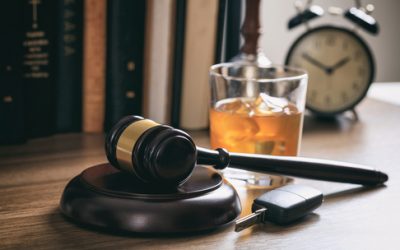
Facing a DUI charge in California? You might not have to go to trial, as most DUI cases are settled out of court.
For first-time offenders, a plea offer is often made, allowing you to plead guilty in exchange for reduced penalties. This can help avoid the stress and time of a trial.
However, sometimes a plea bargain isn’t the best choice. Depending on your case, going to court and pleading not guilty might be more beneficial. Consulting with a Los Angeles DUI lawyer can help determine the best approach for your situation.
What Factors Are Considered For a DUI Case to Be Settled Out of Court?
Several factors determine California DUI penalties and whether or not your case will be able to be settled out of court. This includes:
- Your blood alcohol content (BAC): Higher BAC levels can result in more severe penalties.
- Number of prior offenses: Repeat offenders face harsher consequences.
- Any property damage or injuries caused: Incidents involving damage or injury lead to stricter punishments.
- Number of charges against you: Multiple charges can increase the severity of the penalties.
- Evidence of reckless driving: Reckless driving can aggravate the DUI charges.
- Results of Field Sobriety Tests (FSTs): Poor performance on FSTs can be used as evidence against you.
- Additional circumstances: Other factors, such as minors in the vehicle, can also affect the penalties.
An experienced DUI attorney can review your case and guide you on the best course of action. They will help you understand your options and choose the most appropriate path forward.
Viable Defenses to Avoid Court
When considering whether to go to trial, many factors can influence the decision:
- Driver identification: Sometimes, the police may struggle to prove you were the one driving the vehicle.
- Breathalyzer device accuracy: Issues with BAC tests, including the accuracy of the breathalyzer device, can arise.
- Legality of blood tests: The legality of how the blood sample was obtained can be questioned.
- Physical issues with FSTs: Physical conditions can skew the results of Field Sobriety Tests.
Given these points, presenting a strong defense to a jury can be challenging. In many cases, it might be more advantageous to settle without going to trial, working with the prosecution and the judge to resolve.
In What Situations Will Charges Be Dropped?
Each DUI case is unique and hinges on whether the police followed proper procedures and the accuracy of any chemical tests. DUI charges can often be challenged and potentially dropped if certain conditions are met:
- Illegal searches and seizures: Police must have probable cause to search your vehicle for alcohol or evidence of drinking. Without a warrant or valid reason, such searches violate the Fourth Amendment.
- Grounds for vehicle stop: Police need a valid reason to stop your vehicle, such as witnessing a traffic violation or dangerous driving. If you were following the laws and driving normally, the stop might be unlawful.
- Invalid field sobriety tests: Officers must administer field sobriety tests correctly. If these tests are not performed according to regulations, the arrest may be invalid.
- Improper chemical tests: Officers must inform suspects of their rights before conducting blood or breath tests. Additionally, testing machines must be regularly inspected, and the chain of custody for the test results must be maintained.
- Right to legal counsel: After an arrest, you have the right to be informed that you can speak with a lawyer.
- Unconstitutional stops or searches: For example, roadside sobriety checkpoints must give drivers advance notice of the location of the roadblocks.
If the prosecution recognizes weaknesses in their case, they might be open to negotiating a plea bargain, potentially reducing the charges to a less severe traffic violation.
DUI convictions can lead to jail time, fines, increased insurance premiums, license suspension, and other serious consequences.
Understanding Plea Bargains
A DUI plea bargain is a negotiation between the defense and prosecution to resolve a criminal charge. Usually, the prosecutor proposes a lighter sentence or reduced charges in return for a guilty plea, which helps avoid the unpredictability of a DUI trial.
In certain situations, accepting a plea deal can be the best way to handle a DUI case. For example, if your BAC test exceeds the legal limit, a DUI attorney could negotiate a plea agreement to lessen the severe penalties you might face if you went to trial.
DUI penalties can include:
- Supervised probation lasting between three to five years
- Possible incarceration in county jail or prison
- Significant financial penalties and court fees
- Suspension or revocation of your driver’s license
- Requirement to install an ignition interlock device
- Obligation to attend DUI education programs or similar interventions
Sometimes, a defense lawyer can reduce a DUI charge to a wet reckless charge. While this counts against you for future DUI convictions, the penalties and consequences are less severe than those of a DUI conviction.
Accepting a plea deal for a DUI is not mandatory. You have the option to take your case to court if you want. It’s important to carefully consider the advantages and disadvantages of each option with the guidance of a knowledgeable lawyer before making your decision.
Who Determines if a DUI Case Settles Out of Court?
The choice to settle a DUI case out of court ultimately lies with you. Your attorney will provide a recommendation based on your case’s specifics to help you make an informed decision.
If you have a criminal history or previous DUIs, the state may propose harsh penalties if your case goes to trial. In such instances, accepting a plea deal might be wise, as it usually leads to significantly reduced punishments.
Considering a Trial
If the plea offer isn’t satisfactory, you can still choose to go to trial. However, keep in mind that a trial doesn’t guarantee a win or a better outcome than the plea agreement. This is an important factor to consider when deciding on the next steps for your DUI case.
Are You Facing DUI Charges and Want to Settle Out of Court?
DUI charges are very serious and can have long-term effects on your life. Understanding your options and seeking the right legal assistance is vital in making the best decisions to reduce your charges.
Many people wonder, “Can DUI cases be settled out of court?” The answer often depends on the specifics of your case. An experienced Los Angeles DUI lawyer can evaluate your situation, negotiate plea deals, and guide you through the process.
Consulting with a knowledgeable lawyer will help you understand whether settling out of court is a viable option for you and make sure that you take the best steps forward in your case.







